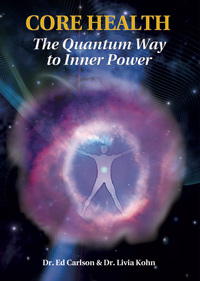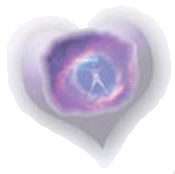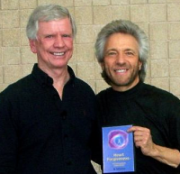Give as Good as You Get: How to Deal with Anger
A Speech Class presentation by Susan Butzke
Lets take a new look at how to deal with anger.
“Of the seven deadly sins, anger is possibly the most fun. To lick your wounds, to smack your lips over grievances long past … to savor the morsels of both the pain you are given, and the pain you are giving back is in many ways a feast fit for a King. The chief drawback is that what you are wolfing down is yourself … the skeleton at the feast is you.”
Frederick Beuchner in his book, “Wishful Thinking,” writes about a meal we’ve all eaten. A delicious but poisoned meal that will kill you without the only known antidote: forgiveness. Yes, that process that’s gotten such a bum rap… “forgive and forget…let bygones be bygones” and all that jazz. Tonight, I’m going explain what anger is and how it hurts you … then, I’ll tell you about forgiveness and why forgiveness is the solution to this harm and how to deal with anger.
So … what is anger? The Merriam-Webster dictionary defines anger as “… an intense emotional state induced by displeasure.” And Dr. Redford Williams further clarifies in his book, “Anger Kills,” … “we’re not talking about the rage that drives people to shoot, stab, or otherwise wreck havoc upon their fellow humans. Instead, it’s the everyday sort of annoyance and irritation that courses through the minds and bodies of perfectly normal people.”
Anger, in all of its varying degrees of expression, is a powerful response that triggers an immediate physical reaction—the ‘fight or flight’ response; same as when you are afraid. In her article, “How Anger Works”, Molly Edmonds describes the physical expression of anger as: “The adrenal glands flood the body with adrenaline, cortisol, and other stress hormones. The brain directs blood away from digestion and towards the muscles in preparation for physical exertion. These changes are perceived as clenched fists, a pounding heart and a racing mind.” And this is all well and fine if someone has just stolen your wallet or purse…you need to be primed for action. But what happens if you are just pissed off about that idiot who cut you off when driving to work today? What are all those high-voltage chemicals doing for you now? Nothing good, I can assure you.
The long term physical effect of anger are well documented in the results of a study published in 2000 by the American Heart Association.
“Among 12,986 middle-aged men and women, those who rated high in traits such as anger – but had normal blood pressure – were more prone to coronary artery disease or heart attack. In fact, the angriest people faced roughly twice the risk of coronary artery disease and almost three times the risk of heart attack compared to those with the lowest levels of anger.”
I’ve told you how anger hurts you, now for the antidote … forgiveness. Major world religions and wisdom traditions have long considered forgiveness one of the most important human virtues; others call forgiveness a process reserved for the weak when they have lost to the strong. Psychiatrist Dr. Lynn Ponton writes a great definition in her article, “What is Forgiveness?” – “Forgiveness is letting go of the need for revenge and releasing negative thoughts of anger, bitterness, and resentment.”
And get this: forgiveness releases powerful chemicals too. In the early 1970s, Dr. Candace Pert had a key role in the discovery of proteins called opiate receptors in the brain. This was VERY big because it showed how narcotics like morphine, heroin, and other opiate drugs affect the body. This also led to the discovery of endorphins — natural narcotics produced by our bodies that relieve pain and stress without addiction. In her book, “The Molecules of Emotions,” Dr. Pert states that “…forgiveness creates the “relaxation response” and releases endorphins to all parts of your body.”
With all of these benefits — why has forgiveness gotten such a bad rap?
As Dr. Ponton explains, it’s confusion about forgiveness:
“Forgiveness is not forgetting or pretending it didn’t happen. It did happen, and we need to retain the knowledge without holding onto the pain. Forgiveness is not excusing – we excuse a person who is not to blame. We forgive because a wrong was committed. Forgiveness is not giving permission to continue harmful or hurtful behaviors; nor is it condoning the behavior in the past or in the future. Forgiveness is not reconciliation.
We have to make a separate decision about whether to reconcile with the person we are forgiving, or, to maintain our distance from them.”
Now that I’ve swept away your confusion about forgiveness…let’s recap:
- Anger releases those high-voltage stress chemicals into your body which can make you sick over time.
- Forgiveness releases blissful, feel-good chemicals that cause a relaxation response in your body.
- And, after all I’ve informed you about tonight about anger and how to deal with anger, I believe you will agree:
Forgiveness does YOUR body good – it benefits YOU first . . . then everybody else.
When you choose forgiveness, you really do get as good as you give! As a gift from your self.




